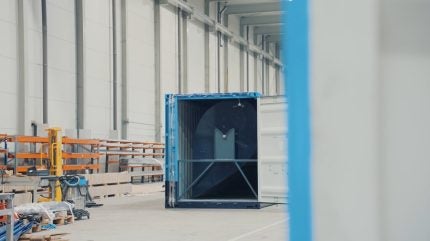
Netherlands-based Econowind has announced that it has sold more than 100 VentoFoil units for wind-assisted ship propulsion.
This achievement reflects the maritime industry’s efforts to reduce fuel consumption and CO₂ emissions in compliance with stricter global regulations, according to the company.
Since the installation of the first two units on MV Ankie in 2018, the technology has been deployed on various vessels, including bulk carriers, tankers, RoRo, and container ships.
Currently, 32 units are operational, with an additional 33 in production or awaiting installation, and 37 more on order.
To cater to the increasing demand, Econowind is expanding its production capabilities in Zeewolde.
The facility upgrade will enable the company to achieve “higher output” with reduced lead times, allowing more shipowners to access the benefits of VentoFoil technology.
The VentoFoil product line, available in 10m, 16m, 24m, and 30m versions, offers flexibility to accommodate different ship sizes and operational requirements.
Econowind also provides containerised and Flatrack VentoFoil units for easy transfer between vessels, enhancing operational flexibility for shipowners and contributing to the reduction in carbon emissions.
Econowind CCO Chiel de Leeuw said: “Surpassing 100 VentoFoil units sold is a clear sign that Wind-Assisted Ship Propulsion is gaining real momentum.
“With rising fuel costs and increasingly strict environmental regulations, shipowners are embracing wind power as a proven solution. As we scale up production, we’re eager to help even more vessels transition to greener shipping.”
With the upcoming FuelEU Maritime regulations set to increase CO₂ reduction targets from 2% to 80% by 2050, shipowners utilising VentoFoil technology can take advantage of the Wind Reward Factor (WRF).
This factor lowers reported emissions, aiding compliance with FuelEU Maritime, Carbon Intensity Indicator (CII), and EU Emissions Trading System (ETS) regulations.
The integration of VentoFoils not only reduces fuel costs and carbon allowance expenses but also improves CII ratings, according to the company.
In 2023, Japanese shipping company Ocean Network Express (ONE) started its first trial of wind propulsion technology with Econowind, installing two large metal foils on one of its vessels.



